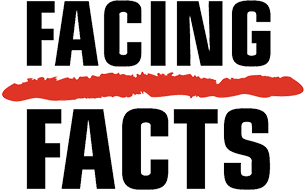Connecting on hate crime data in Europe
cite as: Perry, J. (2019) ‘Connecting on Hate Crime Data in Europe’. Brussels: CEJI. Design & graphics: Jonathan Brennan.
You can also explore:
- national reports for Greece, Hungary, Ireland, Italy, Spain, the United Kingdom (England and Wales)
- bias indicators courses for all professionals working to improve hate crime recording and reporting
The project’s four main objectives:
- To discover what works and identify gaps and opportunities to improve cooperation and data sharing between criminal justice systems and CSOs;
- To develop high quality and targeted online training which will advance the implementation of hate crime strategies, and can be tailored to a variety of national contexts and integrated into existing learning programmes;
- To build the capacity of law enforcement and public authorities to take a victim-centred approach to monitoring and recording hate crime; and
- To inform EU policy through evidenced and practice-based recommendations on improving hate crime recording, reporting and training methods in these areas.
Introduction: Connecting on hate crime data in Europe
If we are to understand hate crime, support victims and reduce and prevent the problem, there are some basic questions that need to be answered:
How many hate crimes are taking place? Who are the people most affected? What is the impact? How good is the response from the police? Are cases getting investigated and prosecuted? Are the courts applying hate crime laws? Are victims getting access to safety, justice and the support they need?
► Read the full ‘Introduction: Why connect on hate crime data?‘
Executive summary and recommendations
Facing All the Facts built on the work of the Facing Facts project, established since 2011, to make hate crime visible in Europe. In parallel to the development and delivery of the online training courses for police and civil society organisations8, the Facing All the Facts project conducted a participatory action-research methodology across 6 EU Member States that:
- Tested ways to improve understandings of reporting and recording of hate crime
- Supported shared conversations between the CSOs and public authority actors at the heart of national ‘systems’ of hate crime reporting and recording
- Created new relationships and collaborations between those actors, and
- Attempted to shift those systems towards a victim-centred and action-oriented approach
This section highlights the project research’s key findings, and proposes recommendations based on the tools, mechanisms and concepts that were identified, consolidated and developed over the course of three years (2016-2019).
► Read the full ‘Executive summary and recommendations‘
Findings
► III. The journey of a hate crime case
► IV. The hate crime recording and reporting system
► V. Improving data literacy and using the data we have
► VI. A victim and outcome-focused framework for improving reporting and increasing reporting
► VII. Principles and practices of connection
► VIII. Supporting ‘change agents’: ‘bubbles’ of knowledge’ and an ‘anti-hate crime community’
► IX. Understanding and making visible the national hate crime ‘story’
Methodology
This section is comprised of three parts:
Part one describes the research questions, timeline of activities and the methods employed to identify gaps and opportunities in national hate crime recording and data collection systems. It includes:
- A literature review of existing data, policy and practice frameworks relating to hate crime recording
- A workshop methodology that both supports bi-lateral and multi-lateral consultation and the co-design of graphics to present research findings.
► Part I: Research questions, methods and timeline
► Part I: The self-assessment framework
Part two uses feedback and reflections from stakeholders to evaluate the outputs of the research methodology.
►Part II: Critical evaluation of the Journey and the Systems methods
Part three presents a step by step guide to activities used during the research, including national workshops and change agent interviews.
► Part III: Facilitator’s guide for national workshops and change agents interviews
Annexes
► Annex one: National hate crime data assessment matrix
► Annex two: Change agent interview guide
► Annex three: International standards relating to hate crime reporting, recording and data collection
References
References to books, journal articles, regional legislation, international legislation, case law, articles, websites and databases.
Background to the Facing all the Facts project
The Facing all the Facts was a project funded by the European Union Rights, Equality and Citizenship Programme (JUST/2015/RRAC/AG/TRAI/8997) with a consortium of 3 law enforcement and 6 civil society organisations across 8 countries.
Lead Partner
CEJI-A Jewish contribution to an inclusive Europe
Partners
NPPC, ENAR Ireland, CST, CIDI, MCI, OSCAD, NUPS, Praksis
On this page you can access all the findings from the European Report. You can download a PDF version at the bottom of the page.
Download
► Download the full report as a PDF (7.5MB)
European Report in other languages – EL, ES, IT
► ES: La coordinación de los datos de delitos de odio en Europa – PDF (7MB)
► IT: Il coordinamento sui dati relativi ai crimini d’odio in Europa – PDF (7.5MB)

This work is licensed under a Creative Commons Attribution 4.0 International License.


 Facing Facts is co-funded by the Citizens, Equality, Rights and Values Programme
Facing Facts is co-funded by the Citizens, Equality, Rights and Values Programme